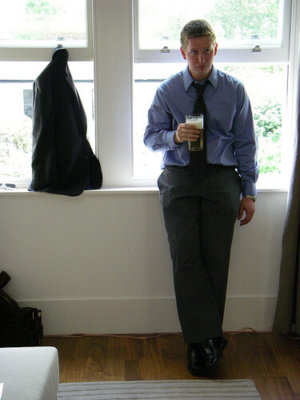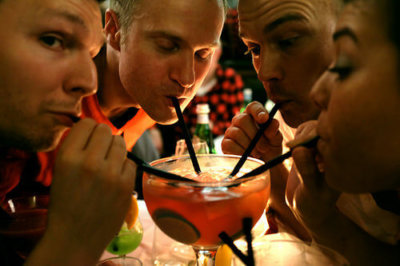Alcohol and Depression – Are You Drinking Yourself Sad?
by Andrea M. Darcy
How connected are alcohol and depression, really? And what if you only feel happy when drinking alcohol?
“I’m only happy when drinking alcohol”
The British public is hardly known for its restraint when it comes to alcohol.
According to the charity Alcohol Concern, 24% of Brits and Scots regularly drink more units than the recommended guidelines.
And it contributes to over six thousand deaths a year, as well as more than 60 medical conditions. One of which is depression.
Alcohol and depression – chicken or egg?
The relationship between drinking and depression is less about determining which causes the other. And more about an intertwined relationship that becomes a vicious cycle.
For example, we can convince ourselves that alcohol makes us feel good. We drink to relax after a hard day. So we see alcohol as stopping any depression.
But even a casual drinking habit leads to lighter sleep, fatigue, irritability, and a lowered performance at work. And the more we make mistakes or snap at those we love, the more we feel we have had a bad day. The more we drink, and on the cycle goes. Over time, we develop bigger problems in life that mean we feel worse.
A study by the University of Vermont found that alcohol use “significantly predicted decreased happiness the next day” for both men and women in the study, with a slightly higher risk of sadness in women than men.
Is alcohol a depressant?
Yes. Alcohol gives you a quick up, but it’s actually classified as a depressant. For example, alcohol increases the amount of a neurotransmitter called GABA. This has the role of slowing your energy down, ‘depressing’ your brain. It is the very neurotransmitter things like Valium work to increase. And we can all agree Valium is no upper.
If alcohol is a depressant why do I feel happy?
Alcohol does up your amount of dopamine, a chemical connected to your brain’s ‘reward’ patterns. So alcohol makes you feel that you are suddenly happy. Of course, to maintain that sensation, just like any pleasurable activity that releases dopamine (a good holiday, being around someone exciting) you are driven to keep drinking.
But the more the dopamine release encourages you to drink another few rounds, then the more other parts of your brain are suffering a depressed effect. And that depressed effect lingers, while the dopamine is only a quick hit that fades fast.
Is drinking when sad dangerous?
It’s worth noting that if you already suffer mood issues, you are more at risk of alcohol issues.
An overview pulling data from over 35 studies found that if you are prone to depression, your chance of having alcohol problems are more than doubled. And you are at a higher risk for suicide.
But what if alcohol and depression don’t seem related for me?
Before you convince yourself you don’t have a problem, get honest with yourself if the following sound familiar:
- anxiety about what you did and said
- poor performance at work
- fatigue and insomnia
- self-esteem issues due to weight (alcohol is high in calories)
- sexual difficulties or promiscuity
- cycles of shame and regret after drinking
- troubles being focussed and organised
- relationship difficulties.
And note even casual alcohol use lowers our resiliency. Even if right now alcohol-related low moods and exhaustion seem no big deal, if life suddenly throws a curve ball? Like losing your job or the loss of a loved one? You would be more likely to panic and suffer low moods.
Warning signs you are drinking too much
This is not to say if you have an occasional drink you are going to suffer depression. Or that you have to be depressed to have a drinking problem.
Warning signs that you are drinking too much include:
- using alcohol to cope with your moods or feel confident
- needing to drink more and more to reach the same effect
- not being honest with loved ones about how much you drink
- believing having a hangover is normal
- thinking about the next time you’ll drink throughout your day
- physical signs of a drinking problem (low self-care, poor health, weight gain, etc)
- alcohol use directly affecting your relationships, career, and family life.
How can you tell if your moods and drinking are connected?
Ask yourself the following questions.
- Take note of your mood before and after drinking. Is there a pattern?
- Notice your triggers and reasoning for consuming alcohol. What drives you to drink?
- Are you using alcohol to hide from anger or sadness that might be best dealt with in other ways?
- If you didn’t drink for an entire month, would you be the same person, or different?
What if I need help for alcohol and depression?
If you are worried your drinking is out of control, and feel desperate to talk to someone, the Drinkline hotline in the UK offers free and confidential advice at 0300 123 1110.
You can also talk to your GP, or book a session privately with an addictions counsellor.
We connect you with some of London’s most highly regarded and experienced depression counsellors and psychotherapists. Or use our sister site to find UK-wide registered therapists who can help with alcohol and depression.
 Andrea M. Darcy is a health and wellbeing writer as well as mentor who often writes about trauma, relationships, and ADHD. Find her on Instagram @am_darcy
Andrea M. Darcy is a health and wellbeing writer as well as mentor who often writes about trauma, relationships, and ADHD. Find her on Instagram @am_darcy






